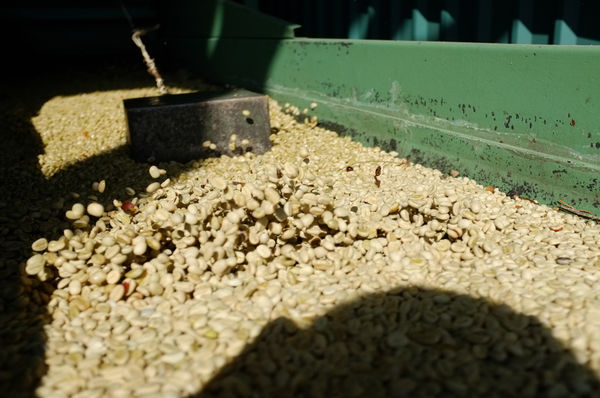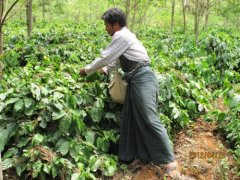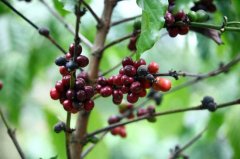The details of using water in coffee machine "water" may be the biggest killer of your coffee machine.
The details of using water in coffee machine "water" may be the biggest killer of your coffee machine.

Even without a drip, you can enjoy sprinkled coffee more easily.
The ancients believed: "Tea is the god of water, and water is the body of tea. If it is not real water, it will not show its god, and its fine tea will not peep into its body." Emperor Qianlong, who loved drinking tea, did not hesitate to measure the weight of the water in the world, and finally decided that the water in Yuquanshan was the first in the world. Scotch Whisky, known as the "water of life", must use local unpolluted water-filtered by granite and baptized through the peat riverbed. The world-famous Maotai Distillery must be built in the upper reaches of the Chishui River leaning on mountains and water, using local water sources with low hardness, rich trace elements and no pollution. In fact, for any high-end drink, water quality is the core factor that can not be ignored.
To extract coffee, we need fresh, odorless, moderate pH and pollution-free water.
Freshness means that the water is rich in oxygen and full of vitality. Chen water, which has been kept for too long, obviously does not meet the fresh requirements and can not be used to make coffee. Warm water (hot water) is not the first choice for extraction because of its low oxygen content-if you can rinse cold water and start heating, it is best not to use hot water, such as a siphon pot to make coffee. Of course, there is a need to save time. No smell is an obvious and important condition. In many cities with poor water quality, there are not only many impurities in tap water, but also high chlorine content, which leads to strong smell and has a serious impact on the taste of coffee. I think many coffee shop operators need to spend more energy on water quality treatment to ensure that there is no smell in the water. This effort is much more effective than upgrading extraction equipment or improving extraction technology. Moderate pH is very easy to understand, the best brewing water is neutral water with a PH value of 7, neither acidic nor alkaline.
No pollution is also extremely important, in other words, the water quality should be pure. But we need to pay attention to the words "too much is not as good as". The water filtered by reverse osmosis (RO) pure water equipment and distilled water can be called pure water, although it meets the conditions of no pollution and no peculiar smell, but it is precisely because it is too pure, the extracted coffee liquid has a strong and strong taste, thin and rigid, poor richness and layering, and the comprehensive flavor is not good, so it is best not to use it. Coffee experts tell us that water purity in which the total amount of Total Dissolved Solids (TDS) is about 150ppm is the most suitable. In this way, some solid substances with a diameter of less than 2 μ m, such as calcium, magnesium, potassium, sodium and carbonate ions, are retained, which provides a guarantee for the extraction of coffee with rich flavor. In daily coffee brewing, we like to mix pure water and tap water (no smell, no pollution) at 10:1, the effect is very good.
Whether to use soft water or hard water to extract coffee has always been controversial. Many people think that the mineral ions rich in hard water (mainly calcium, magnesium, sodium and potassium ions, rather than heavy metal ions such as lead) are not only beneficial and harmless to the body, but also an important carrier to express the flavor of coffee. It can make coffee taste richer and more layered, and even add a little salt to the water of coffee to increase the content of mineral ions. I think water with a hardness of 70~80mg/L is the most suitable for brewing coffee.
In addition, it should be noted that if you use a coffee machine, in order to avoid the accumulation of deposits in hard water with hardness greater than 300mg/L (most of the calcium and magnesium ions in the water will form precipitation after heating, especially after boiling), clogging the pipe and damaging the scale of the boiler, it is imperative to soften the water treatment. Therefore, users of Espresso coffee machines operating with poor urban tap water usually buy both water purification and softening devices, which are placed in front of the inlet pipe of the coffee machine, which is necessary to ensure the quality of the coffee and prolong the life of the coffee machine.
Important Notice :
前街咖啡 FrontStreet Coffee has moved to new addredd:
FrontStreet Coffee Address: 315,Donghua East Road,GuangZhou
Tel:020 38364473
- Prev

What kind of water can be regarded as pure water quality? introduction to the formula of the best water for hand flushing.
The ancients believed that the god of tea is the god of water, the body of tea is not real water, and its fine tea does not peep into its body. Emperor Qianlong, who loved drinking tea, did not hesitate to measure the weight of the water in the world, and finally decided that the water in Yuquanshan was the first in the world. Scotch Whisky, known as the water of life, must adopt this book.
- Next

The classification of coffee roasting trilogy introduces how to be a qualified coffee roaster
Coffee roasting trilogy introduces how to be a qualified coffee roaster. Coffee roasting is a science that is easy to learn but difficult to master. Like cooking, anyone can cook food and eat it to satisfy hunger. But what level of food do you cook? How far and how big is the difference from "able to cook" to "Michelin three-star" chefs? Baking
Related
- Beginners will see the "Coffee pull flower" guide!
- What is the difference between ice blog purified milk and ordinary milk coffee?
- Why is the Philippines the largest producer of crops in Liberia?
- For coffee extraction, should the fine powder be retained?
- How does extracted espresso fill pressed powder? How much strength does it take to press the powder?
- How to make jasmine cold extract coffee? Is the jasmine + latte good?
- Will this little toy really make the coffee taste better? How does Lily Drip affect coffee extraction?
- Will the action of slapping the filter cup also affect coffee extraction?
- What's the difference between powder-to-water ratio and powder-to-liquid ratio?
- What is the Ethiopian local species? What does it have to do with Heirloom native species?

